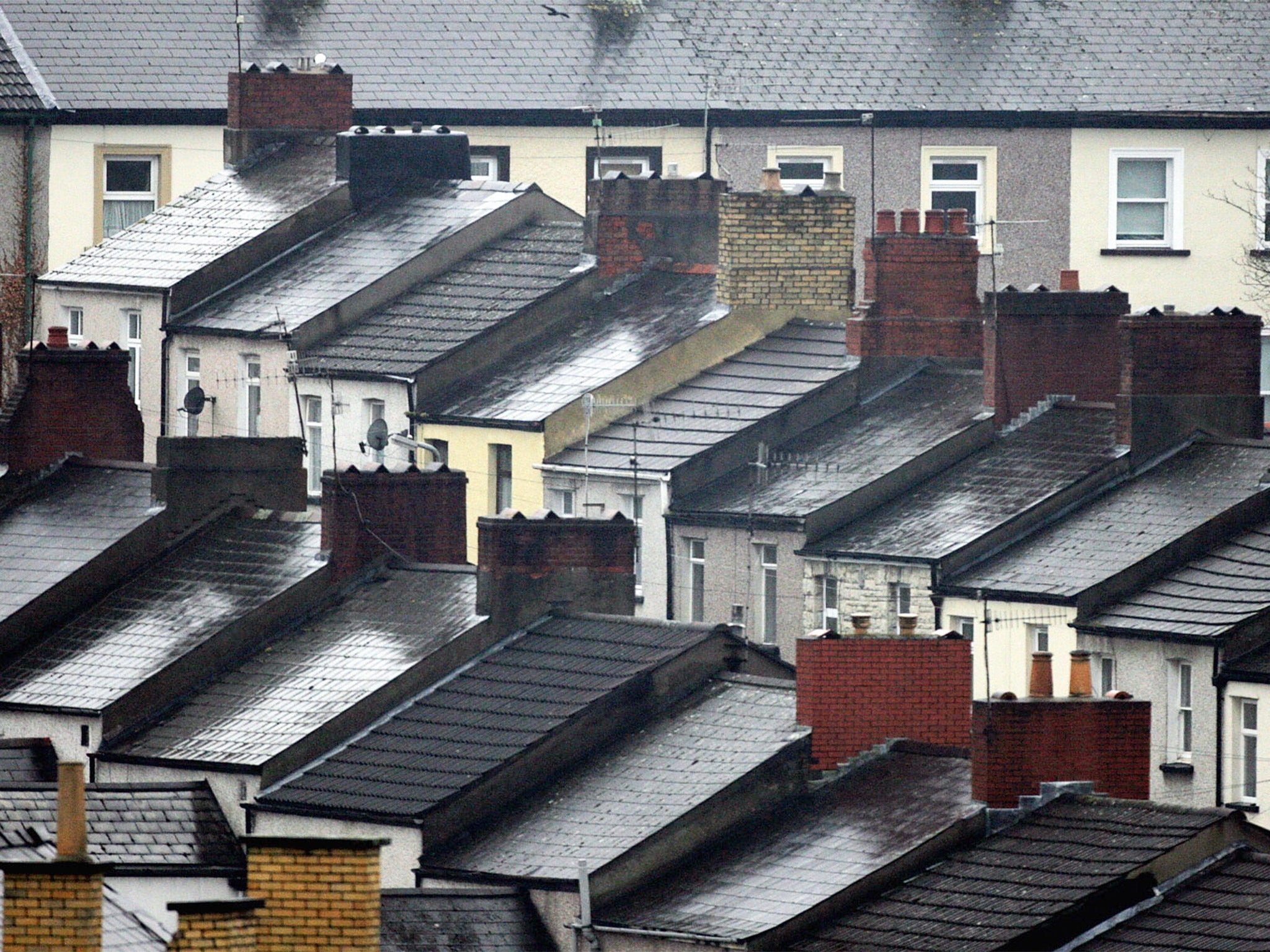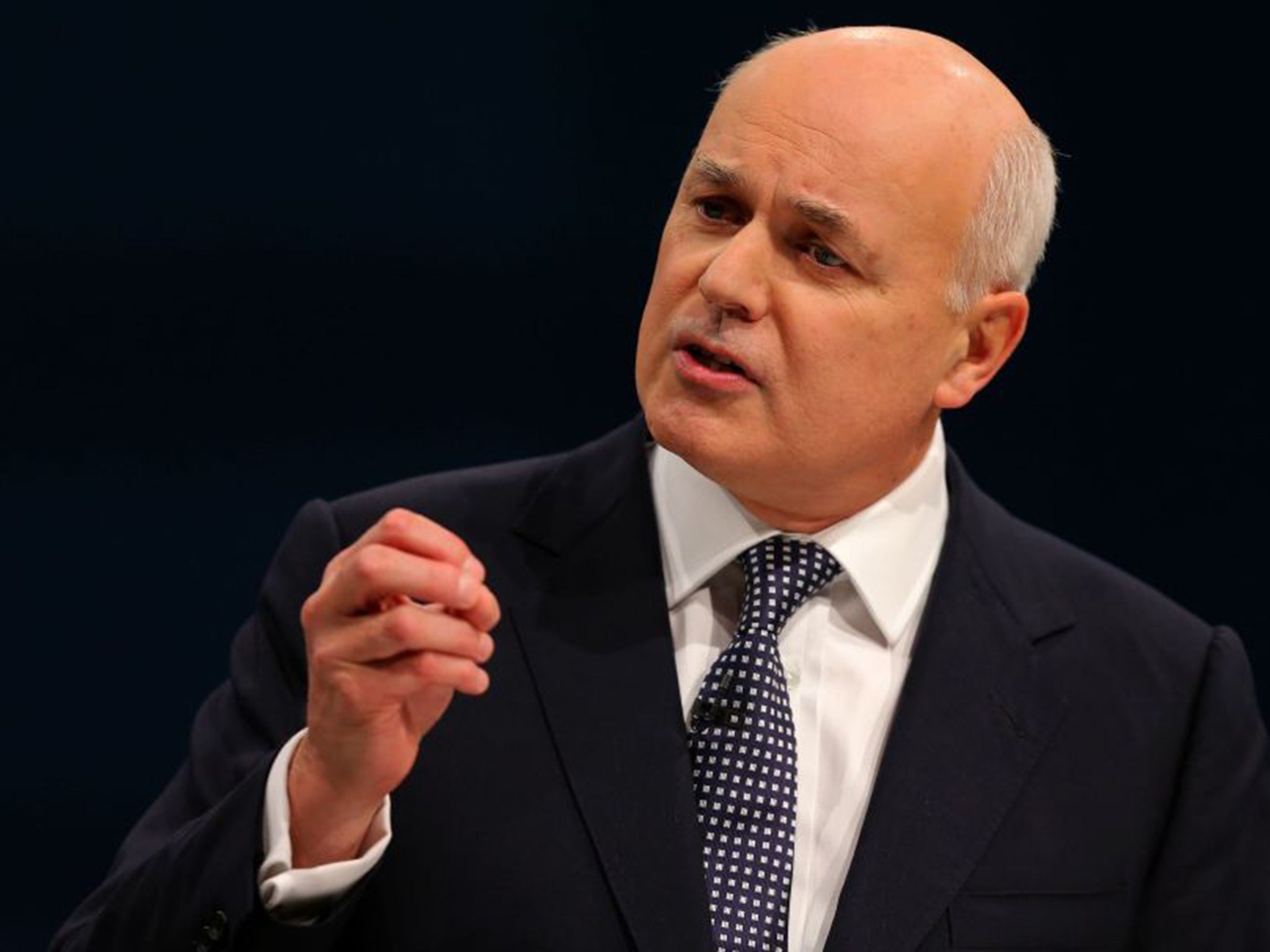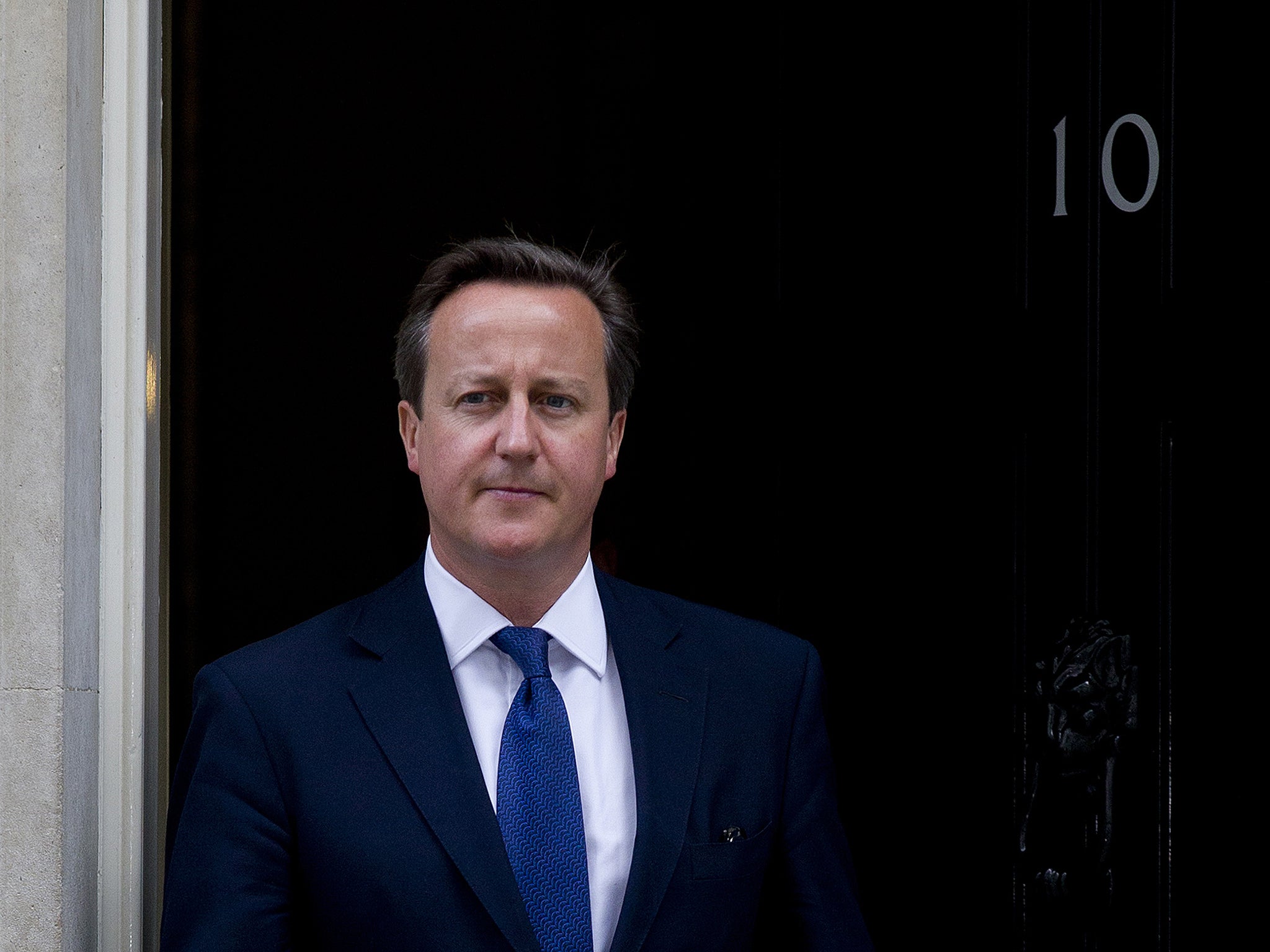Housing benefit bill rose by £2.4-billion under coalition as Labour claim new homes needed
Iain Duncan Smith argues bill fell by £150-million over last year – for first time in a decade

Your support helps us to tell the story
From reproductive rights to climate change to Big Tech, The Independent is on the ground when the story is developing. Whether it's investigating the financials of Elon Musk's pro-Trump PAC or producing our latest documentary, 'The A Word', which shines a light on the American women fighting for reproductive rights, we know how important it is to parse out the facts from the messaging.
At such a critical moment in US history, we need reporters on the ground. Your donation allows us to keep sending journalists to speak to both sides of the story.
The Independent is trusted by Americans across the entire political spectrum. And unlike many other quality news outlets, we choose not to lock Americans out of our reporting and analysis with paywalls. We believe quality journalism should be available to everyone, paid for by those who can afford it.
Your support makes all the difference.New analysis of a report on housing benefit shows that the total bill has risen by £2.4-billion since the coalition took power in 2010 – despite a pre-election promise to reduce the bill.
The figures from the Department of Work and Pensions show that the cost rose to £24.6-billion in 2013-2014, up from £22.99-billion when they took power in 2010, with nearly half a million more people relying on the state handout, bringing the total to around five million.
Although Iain Duncan Smith, Secretary of State for Work and Pensions, said that in 2013-2014 alone, the bill had actually fallen – by £150-million for the first time in a decade.
He famously introduced the spare room subsidy – dubbed the bedroom tax – which reduces benefits paid to people with unoccupied rooms in their homes, and a general benefit cap on the maximum amount claimants can receive.

He told MailOnline: "Without reforms Housing Benefit costs were escalating to dizzying levels that were simply unsustainable.
"The welfare reforms are part of a long-term economic plan to bring spending under control by restoring fairness back into the system.
"At the same time we are helping to make sure our Housing Benefit reforms have a transformative effect on the lives of those who in the past were faced with a system which trapped people into cycles of workless and welfare dependency."
But the bill is expected to hit £25-billion by 2015, reports The Guardian, despite the Tories’ promise to curb ballooning welfare spending and flagship incentives to boost the construction industry.
The number of affordable homes built in 2013-2014 was the lowest in a decade, one of the elements Labour has blamed for the rise in housing benefit spending, with a lack of supply pushing up rent prices.
John Healey, a former Labour Treasure Minister, told The Guardian that the Government had failed to address the lack of new homes early enough and had failed in its promise to the electorate to curb welfare spending.

"He [David Cameron] has made life a misery for people on low incomes by cutting entitlements back to the bone, but the housing benefit bill continues to rise.
"The reasons for his failure are clear. Inaction on low pay and high rents has meant that wages haven’t kept pace with the housing costs, and so more people are struggling to afford their rent. This has meant huge growth in the number of working people now receiving hosing benefit to make ends meet."
But Chancellor George Osborne today told The Sun that there are currently plans for 45,000 new homes in 20 "housing zones" – with eight more to come – as he set out his vision for the future ahead of next week’s Budget announcement.
He is also expected to announce an extension of the Help To Buy scheme, The Guardian reports, in which the Government lends buyers up to 20% of the cost of a new-build home in a bid to stimulate demand, and therefore supply. The paper also claims he'll propose a reform of the compulsory purchase laws to enable property developers to respond more quickly to changes in demand.
However, Osborne also implied today that the Government would remain tough on benefits, repeating the Government slogan that helped them into power, "we’re all in this together", seemingly hinting at further austerity.
In a column in The Sun, he wrote: "My Budget will not be a Budget of pre-election gimmicks or giveaways. It will be a budget for the long-term."
Subscribe to Independent Premium to bookmark this article
Want to bookmark your favourite articles and stories to read or reference later? Start your Independent Premium subscription today.
Join our commenting forum
Join thought-provoking conversations, follow other Independent readers and see their replies
Comments